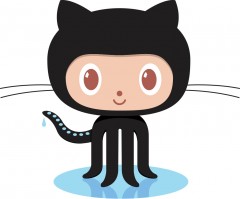 Innovation in how social online tools and their features develop is frequently defined and driven by the network’s users. A collaboration between BioMed Central, some of our authors and editors, and the team behind a powerful social software development platform aims to stimulate innovation in scholarly communication.
Innovation in how social online tools and their features develop is frequently defined and driven by the network’s users. A collaboration between BioMed Central, some of our authors and editors, and the team behind a powerful social software development platform aims to stimulate innovation in scholarly communication.
The ‘social coding’ website, GitHub, was founded in 2008 and its primary aim is to enable users to publicly or privately share source code, and manage software development projects. But it seems that life scientists have had other ideas for quite some time.
Bioinformaticians – one of BioMed Central’s earliest and largest author groups – by definition must create and share software for life science projects. Many BioMed Central journals urge authors to publicly share their code and our authors tell us that GitHub is where they go to share that code.
BioMed Central and open access were born out of the web, and the web continues to offer ways to increase efficiency in science. Through technological collaborations, such as with LabArchives, we’re interested in finding ways of better joining up the the process of doing science with communicating that science.
Therefore, we’ve got together with a group of BioMed Central authors and editors, and the GitHub:Training team to document collaboratively, define and share good practices of how they are using GitHub for science. Until now the GitHub:Training team have had little direct experience of scientists’ uses of their services, and scientists have had little opportunity to share their optimal use cases directly with the GitHub team.
Scientists regularly use GitHub to publicly share their code and papers, author documents collaboratively, and version control their work, often pre-publication. Version control – as Karthik Ram and C. Titus Brown discuss in their blog accompanying this announcement and Karthik details in his article in Source Code for Biology and Medicine – is a powerful example.
Creative uses of GitHub have included the phenomenal crowd-sourced genetic sequencing effort of the 2011 E.coli outbreak, and more recently the open-source fight against the devastating Ash Dieback disease in European Ash trees. By working together, we hope to leverage this creativity to promote best practice and, ultimately, more efficient and reproducible science.
Journals offer important services including coordination of peer review (validation, quality control), creation of authoritative versions of record, and dissemination and promotion of community standards and good practices. These are exactly the services we and the editors of Source Code for Biology and Medicine are excited to be offering this initiative.
Members of the collaborative group will blog here and elsewhere periodically about the project’s outputs, some of which will undoubtedly be defined as we move forward. Please contact BioMed Central to help define more uses of GitHub for science.
One Comment